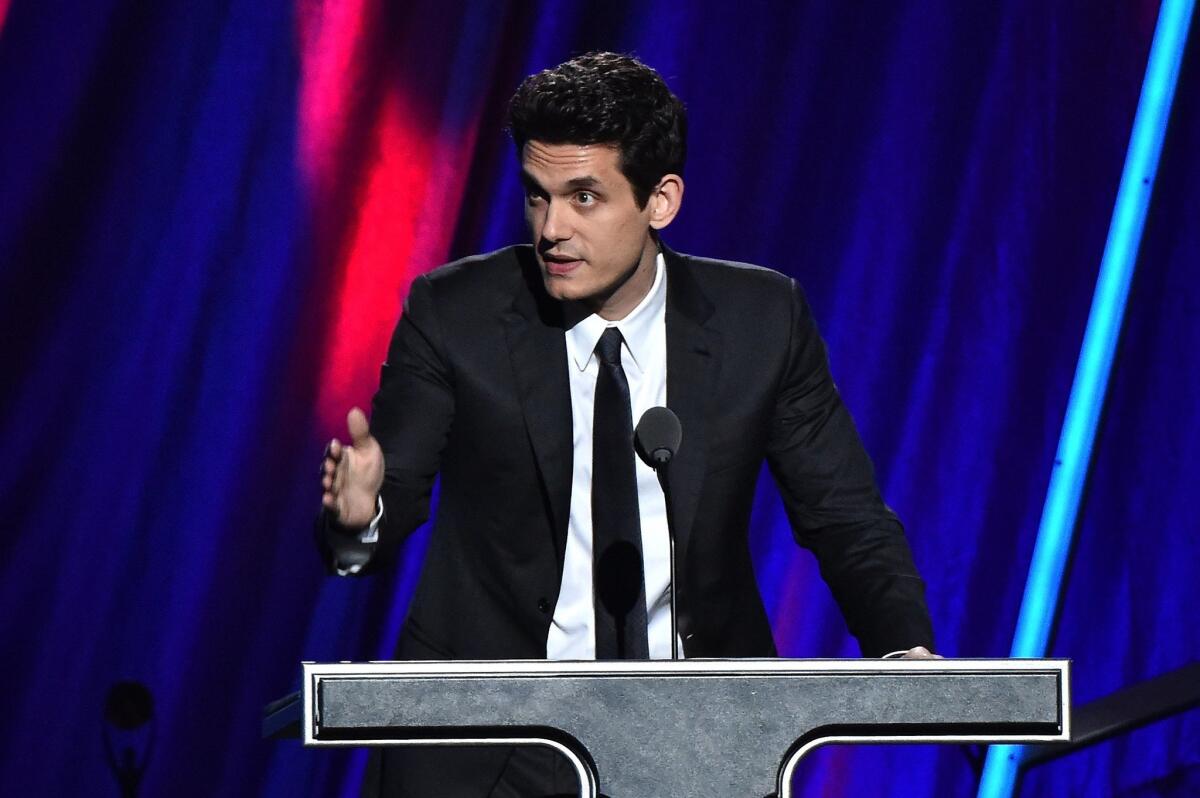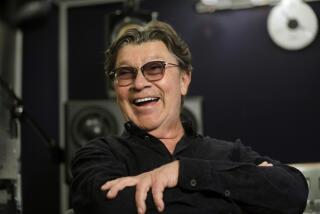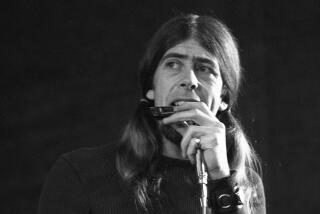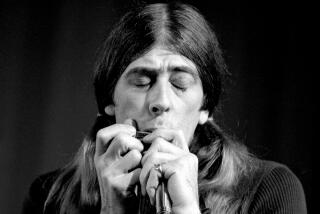Rock Hall of Fame postscript: Rock ‘n’ roll without the drugs?

John Mayer inducts Stevie Ray Vaughan during the 30th
“Sex, drugs and rock ‘n’ roll!” has been the rallying cry in rock music for the last half-century, yet some of the most moving moments during Saturday’s induction ceremony at the Rock and Roll Hall of Fame in Cleveland revolved around musicians who got sober — and those who didn’t.
That wasn’t lost on new inductee Bill Withers, whose induction by Stevie Wonder came late in the nearly six-hour marathon, when he stepped to the microphone and said, “One thing occurred to me tonight: This has got to be the largest AA meeting in the Western Hemisphere.”
CLASSIC ROCK: Follow us on Facebook
The topic was relevant for many of the inductees: blues harmonica player and band leader Paul Butterfield died in 1987, at age 45, of a drug overdose. So did the great lead guitarist who had played with Butterfield, Mike Bloomfield (in 1981 at age 37).
Lowman Pauling, lead guitarist and chief songwriter for the “5” Royales R&B vocal group, died in 1973 at 47 after years of battling alcohol dependency. Ringo Starr, like the rest of the Beatles, experimented with drugs and alcohol in the ‘60s and ‘70s before getting sober in the ‘80s. And of course, proto-punk singer, songwriter and guitarist Lou Reed spent part of his adult life as a heroin addict.
The subject of how musicians have struggled with drug and alcohol abuse came up in a big way during John Mayer’s induction of one of his heroes, Texas blues-rocker Stevie Ray Vaughan, who also went down the rabbit hole of drug and alcohol abuse before getting sober four years before his death in a helicopter crash on the way to a gig.
Mayer called Vaughan “the ultimate guitar hero” and noted that “He fought drug and alcohol addiction, and he emerged an even better guitarist for it. He had the courage to talk openly about it on stage, talking to his fans about how drugs and alcohol wasn’t where it was at.
“He was my hero,” Mayer continued, “and I grew up proudly turning down every drug and drink I was offered, so it might bring me closer to the man I never met. Heroes can save your life.”
Vaughan’s older brother, guitarist Jimmie Vaughan, also spoke to that theme.
“We got into drugs and drinking,” Vaughan said. “Big brother showed little brother how to play the guitar, but little brother showed big brother how to get clean and sober…. Every day I wake up clean and sober, I think of my brother.”
Follow @RandyLewis2 on Twitter for pop music coverage
More to Read
The biggest entertainment stories
Get our big stories about Hollywood, film, television, music, arts, culture and more right in your inbox as soon as they publish.
You may occasionally receive promotional content from the Los Angeles Times.











